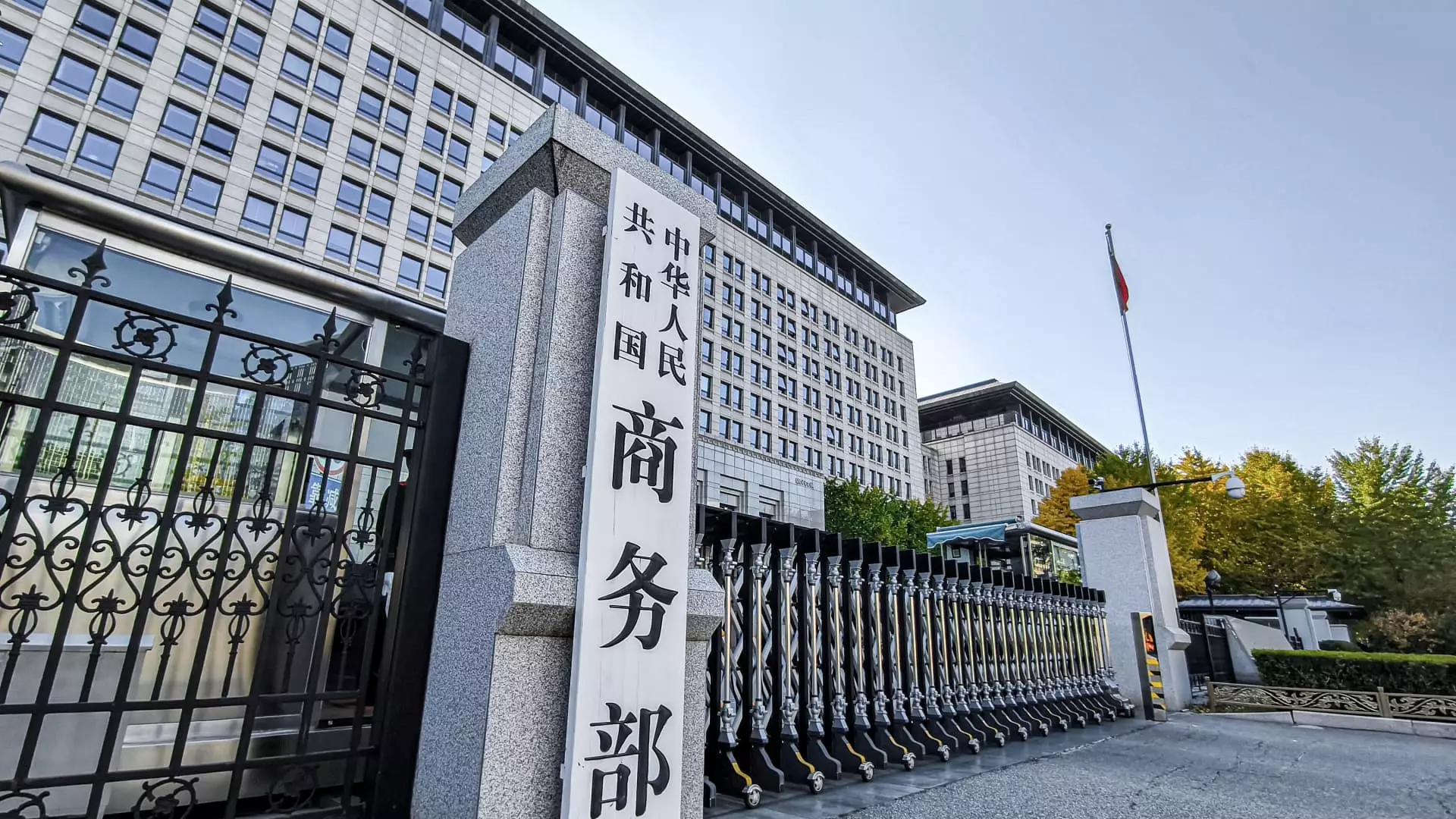The recent announcement by China’s Ministry of Commerce regarding its response to the U.S. tariffs can only be described as a critical, yet expected reaction in the convoluted world of international trade. What President Trump has labeled as “reciprocal tariffs” is, in reality, a manifestation of economic bullheadedness that is unraveling the very fabric of global trade norms. The response from China, emphasizing the need for the U.S. to retract these tariffs, isn’t merely about protecting its own economy; it’s a call to uphold fairness in economic interactions.
The Trump administration’s approach depends heavily on the distorted notion of reciprocity, which overlooks the complexities of global trade dynamics. Imposing hefty tariffs not only violates established trade rules but also risks instigating a broader trade war. The commerce ministry’s assertion that the U.S. measures undermine the legitimate rights of other nations rings true; this isn’t just rhetoric but a justified apprehension shared by several global leaders, including those from Canada and South Korea.
The International Response: A Coalition of Dissent
As countries rally to voice their dissatisfaction with Trump’s abrupt tariff policies, the unified chorus of nations reflects a growing frustration with unilateral measures that have little regard for diplomatic relations. Canadian Prime Minister Mark Carney’s declaration to combat the tariffs with robust counter-measures underscores the notion that resilience in international trade is a collective endeavor. If countries like Canada and South Korea, vital allies of the U.S., view these tariffs as unjust, it illuminates a fracture in international relations fueled by American hubris.
Moreover, when Australian Prime Minister Anthony Albanese characterizes these tariffs as a “poor decision,” it highlights the disillusionment among long-standing allies. Yet, his refusal to retaliate with similar tariffs indicates a nuanced approach; rather than descending into retaliatory chaos, there is a hope to maintain diplomatic ties while firmly rejecting bullying behavior from the U.S.
The Broader Consequences: An Economic Crisis Looming?
The ramifications of this trade skirmish extend beyond the immediate financial impacts on affected countries. As the tariffs increase costs for businesses and consumers, the long-term economic stability of both the U.S. and China hangs in the balance. Trump’s strategy of isolationist economics flirts with destabilization, endangering jobs, production lines, and the very infrastructure that supports international trade.
Amidst these tensions, it’s imperative for the U.S. to recalibrate its approach. Tariffs serve as a blunt instrument that often hurts the average consumer rather than foreign governments. If the ultimate aim is to safeguard American interests, one must question the wisdom of pursuing policies that alienate allies and undermine longstanding partnerships.
Ultimately, the troubling reality is that these escalating trade disputes are not a slight against specific nations but rather a tactical misstep in a larger game of geo-economic chess. The need for dialogue, mutual respect, and adherence to international norms in trade has never been more pressing. As Trump’s administration digs its heels into this aggressive stance, it risks not just immediate economic repercussions but a legacy of discord that may haunt future generations. The government must pivot from these shortsighted tactics to sustained diplomacy, lest we become ensnared in an intractable cycle of retaliatory trading practices.

